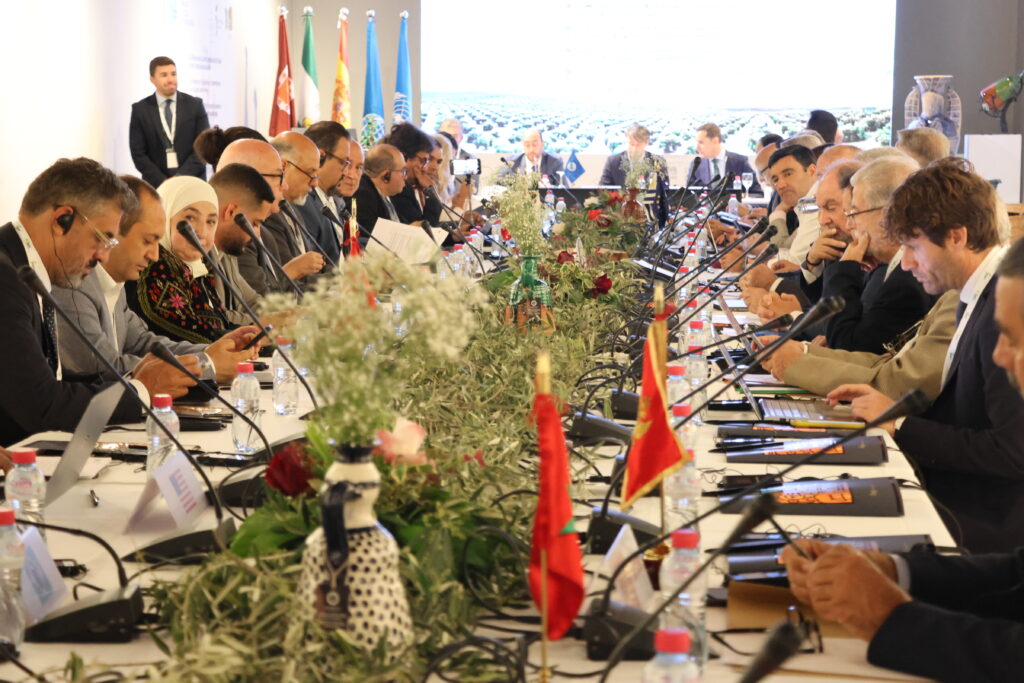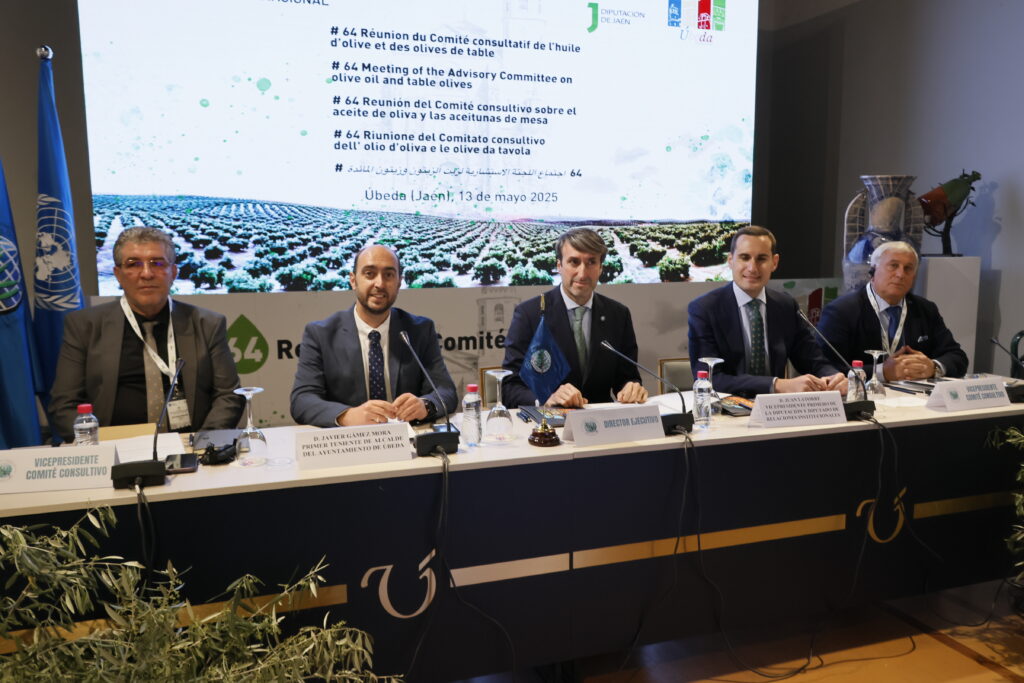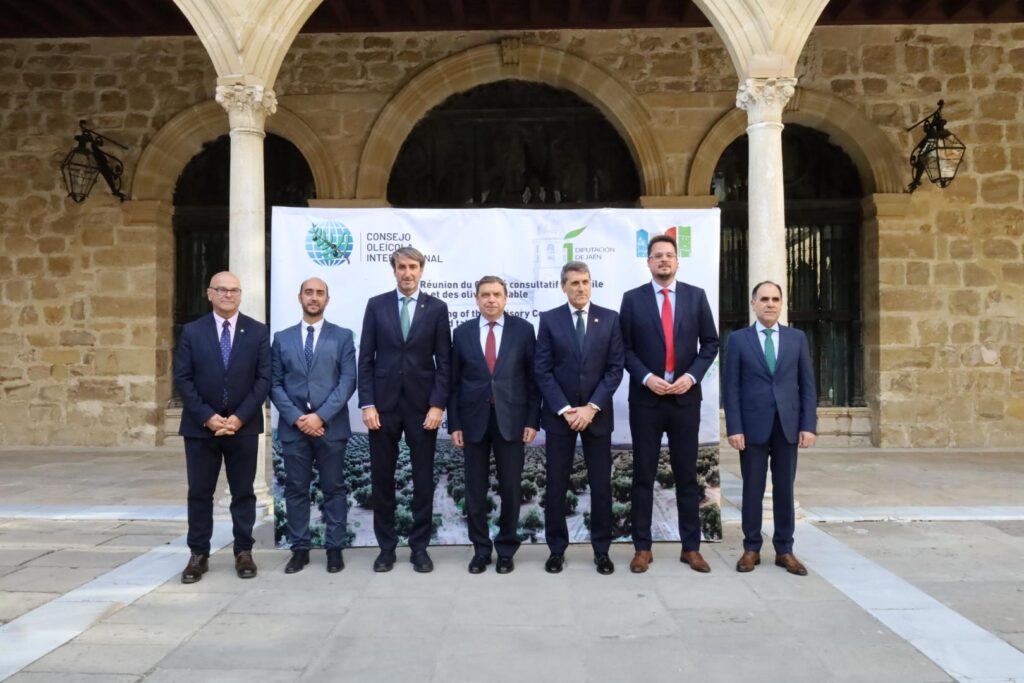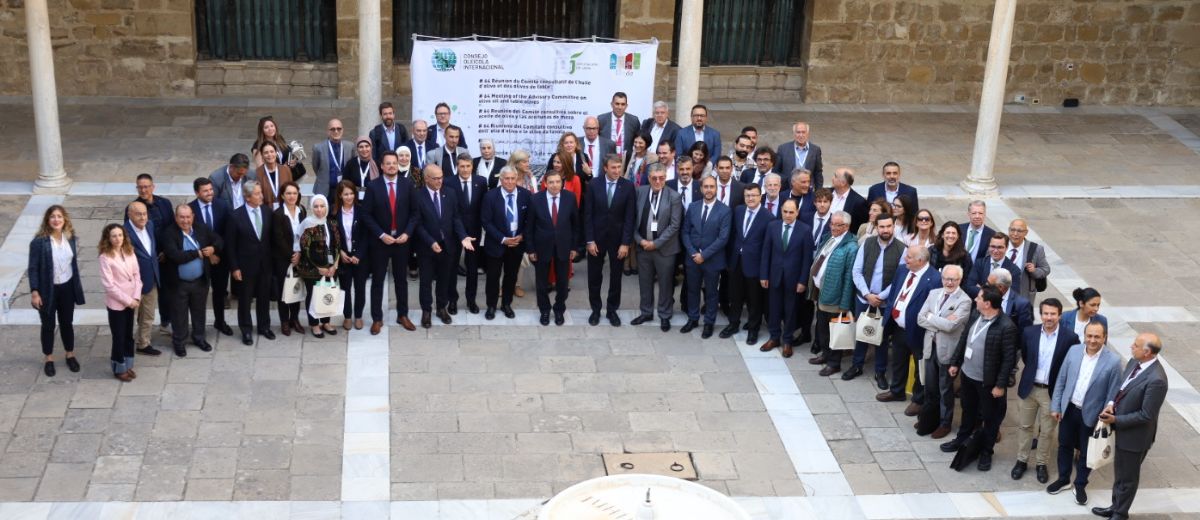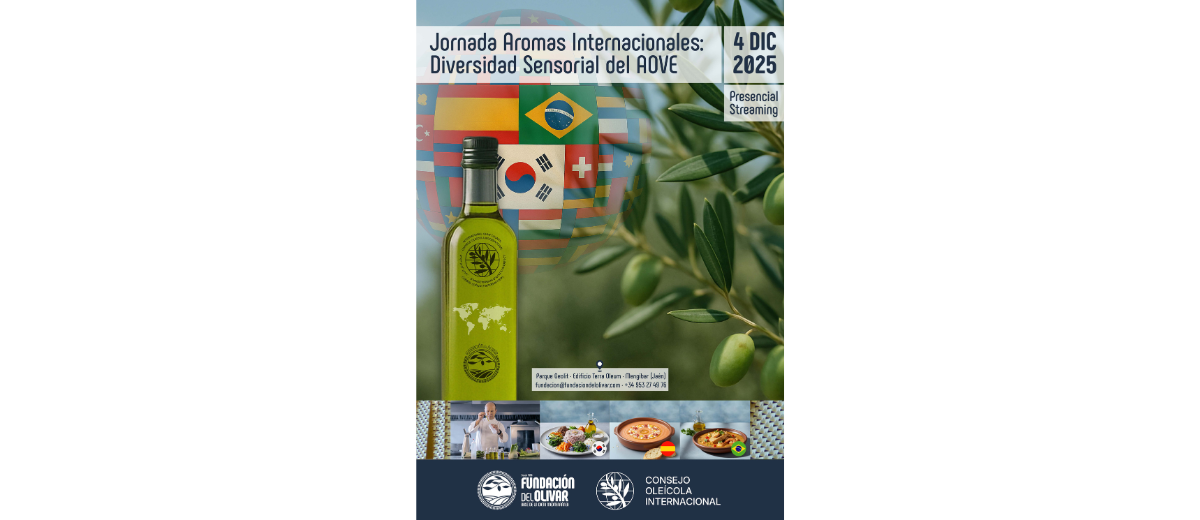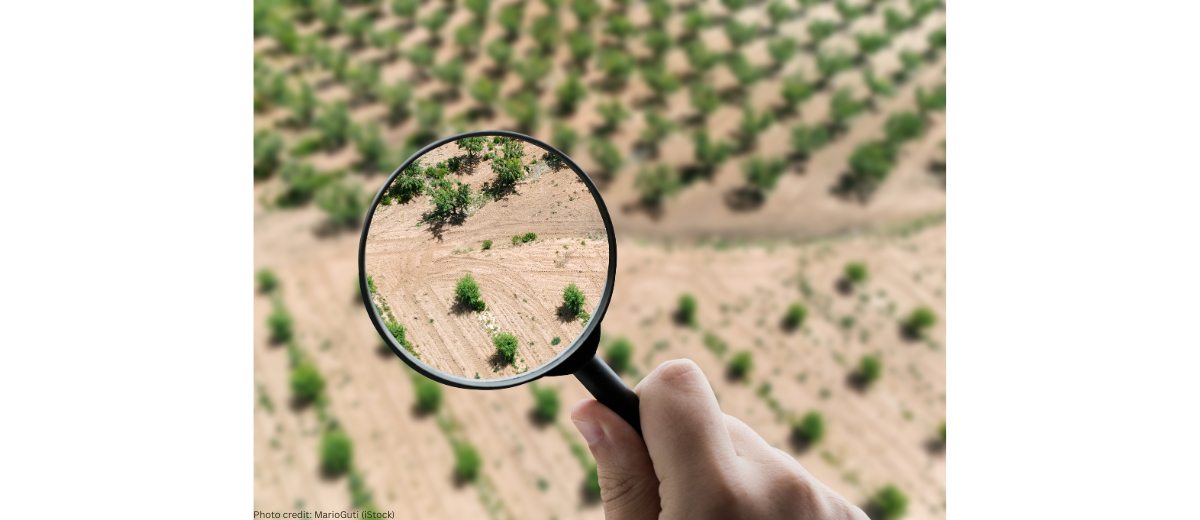Focusing on sustainability and the challenges facing the olive sector
The 64th meeting of the Advisory Committee of the International Olive Council (IOC) was held today in Úbeda, Spain, organised in collaboration with the Provincial Council of Jaén. Around eighty representatives from the IOC’s 47 member countries — including producers, consumers and traders in the olive sector — gathered to review the state of the international market, the progress of the current crop year, and the key challenges for olive oil and table olives.
Countries represented included Spain, Italy, Portugal, Tunisia, Morocco, Algeria, Jordan, Iran, Montenegro, Lebanon and Uruguay, among others, in addition to observer delegations from the United States, Brazil, Peru and South Africa — a clear reflection of the growing international interest in the work of the IOC.
The meeting was opened by the IOC’s Executive Director, Jaime Lillo, who expressed gratitude for the institutional support received and highlighted the value of these technical dialogue platforms for addressing shared challenges, with a special focus on sustainability and climate adaptation.
The Spanish Minister of Agriculture, Fisheries and Food, Luis Planas, closed the meeting by highlighting the essential role of the IOC as a tool for international cooperation. He stressed the importance of the Advisory Committee as a forum for advancing, through consensus, key issues such as standardisation, environmental sustainability, and the international positioning of the sector. He also referred to the growth in production during the 2024/25 crop year and the need to promote sustained olive oil consumption across all countries.
Also speaking at the opening session were Juan Latorre, First Vice President of the Provincial Council of Jaén, and Javier Gámez Mora, First Deputy Mayor of Úbeda. Both welcomed the attendees and underscored the province’s role as a global reference point for olive oil production and culture. Gámez Mora also underscored the IOC’s role as a tool for agricultural diplomacy and reiterated Jaén’s willingness to continue hosting the Organisation and to strengthen future cooperation.
Abdessalem Loued, President of the Advisory Committee (Tunisia), addressed the audience via videoconference, calling for improvements in the profitability of the primary sector and the strengthening of olive oil’s position as a healthy food.
For his part, Francisco Javier Lozano Blanco, Provincial Deputy for Tourism and Promotion, emphasised the importance of the IOC and the pride it brings to the province of Jaén to host a meeting of this intergovernmental body for the second time. He also highlighted the key role played by Spain — and Jaén in particular — in global olive oil production.
Progress on strategic IOC projects
During the meeting, two key initiatives led by the IOC were presented. The first was the Carbon Balance Project, which aims to quantify the olive grove’s capacity as a natural carbon sink and assess its potential in voluntary carbon markets. The pilot phase — open until 30 May via this form — will allow the validation of a scientific methodology and provide specific tools for calculating the net carbon balance. More than 200 participants from nearly 20 countries have already signed up.
The second major initiative was the new digital version of the World Catalogue of Olive Varieties, developed with the UCOLIVO research group at the University of Córdoba. The tool, currently available in English on the IOC website, provides technical information on 60 key varieties and will soon be expanded with over 400 additional entries from the European GEN4OLIVE project, along with new features and versions in other official IOC languages.
